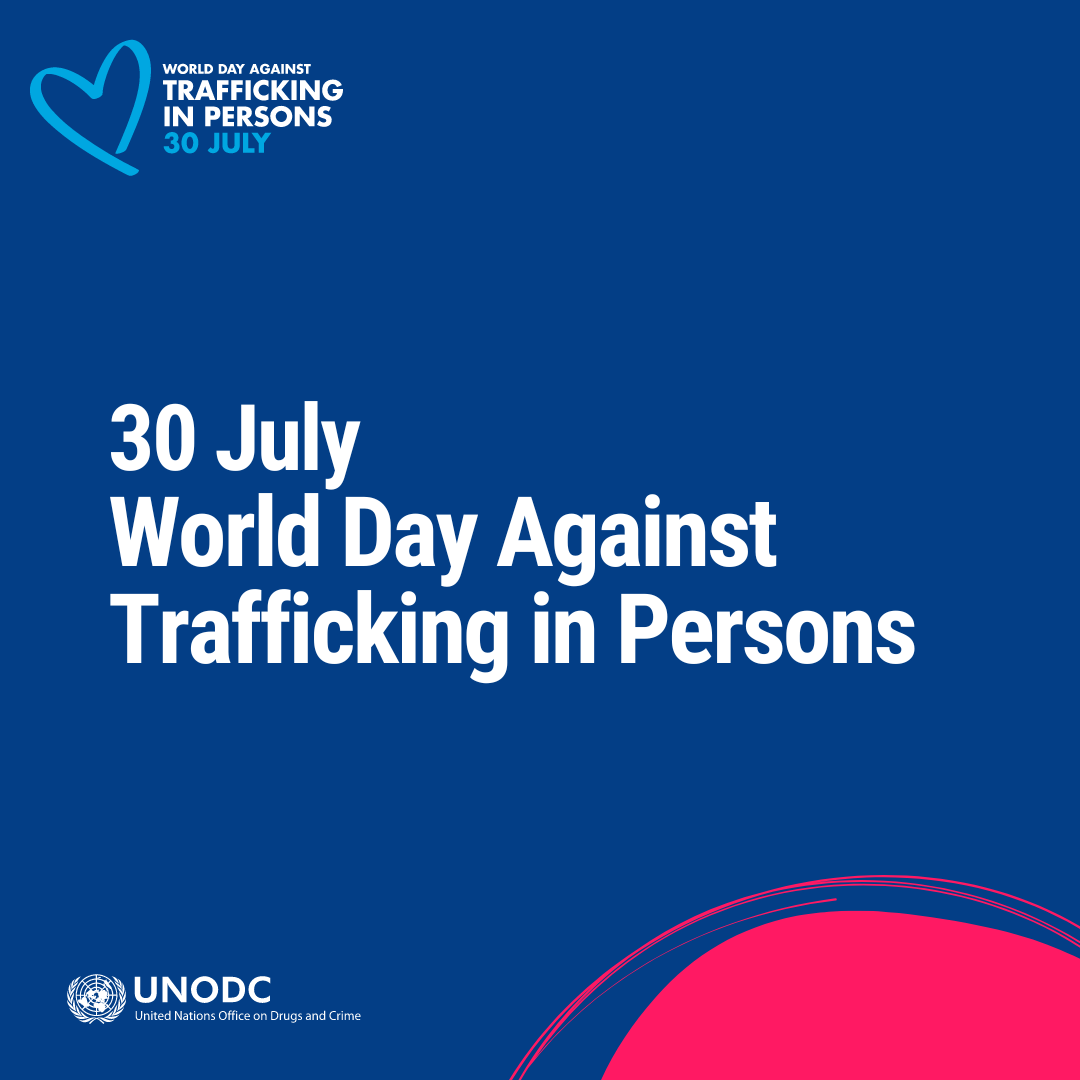World Day against Trafficking in Persons, 30 July 2024

Tuesday 30 July is the International Day against Trafficking in Persons, “a horrific crime that targets the most vulnerable in our societies”, as the UN Secretary-General António Guterres underlined.
Human trafficking is a serious crime and a significant violation of human rights, prohibited, at international level, by the United Nations Convention against Transnational Organized Crime (UNTOC) and the Protocol to Prevent, Suppress, and Punish Trafficking in Persons. Trafficking in persons is defined in the Protocol as the recruitment, transportation, transfer, harbouring or receipt of people through force, fraud or deception for exploitation.
Each year, thousands of men, women, and children fall victim to traffickers, both within their own countries and internationally. Almost every nation in the world is impacted by human trafficking, either as an origin, transit, or destination country for victims.
This year, the UN brought the concerning issue of children as victims of human trafficking to the centre of attention. According to the data, one out of three victims of trafficking is a child and, compared to adults, they are twice as likely to experience violence during the trafficking. The rise of online platforms heightens the risk of child trafficking. As a consequence they risk to be subjected to sexual abuse, forced labor and recruitment into armed groups.
To this day, efforts to combat child trafficking have been insufficient, highlighting the urgent need for comprehensive protective measures, with collaboration both at national and international level. Preventive strategies should address root causes like poverty and inequality, with special focus on unaccompanied refugee minors.
The Blue Heart campaign, by the United Nations Office on Drugs and Crime wants to raise awareness about human trafficking and the impact it has on people and society. It encourages actions from governments, civil society, the corporate sector and individuals for the prevention of human trafficking. By sharing their stories, the Campaign aims to prevent more crimes and to raise funds for the victims under the United Nations Voluntary Trust Fund for Victims of Trafficking in Persons (UNVTF).
At European level, the Council of Europe adopted the Convention on the Fight against Trafficking in Human Beings and it created the Group of Experts on Action against Trafficking in Human Beings (GRETA) with the task to monitor the legislative measures taken by member States and to regularly publish evaluative reports regarding individual states.
Also the European Union demonstrated its effort on the implementation of a number of projects. For instance, it funded the N.E.x.T TO YOU project (the Network for the Empowerment, the Social and Labour Inclusion of Trafficked minors and young adults), which was developed by the Veneto Region and the Human Rights Centre “Antonio Papisca” of the University of Padova and other partners, for the promotion and protection of minors and young people involved in trafficking situations.
As the Blue Heart campaign underlines, it is important to raise awareness about human trafficking daily because, even without knowing, we might have come across its victims.

